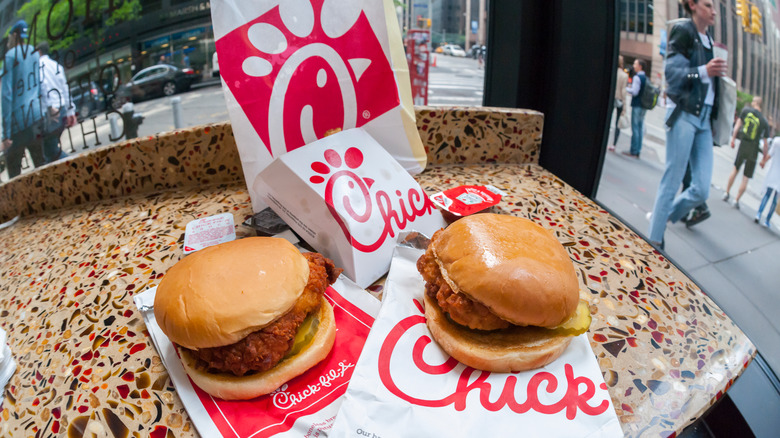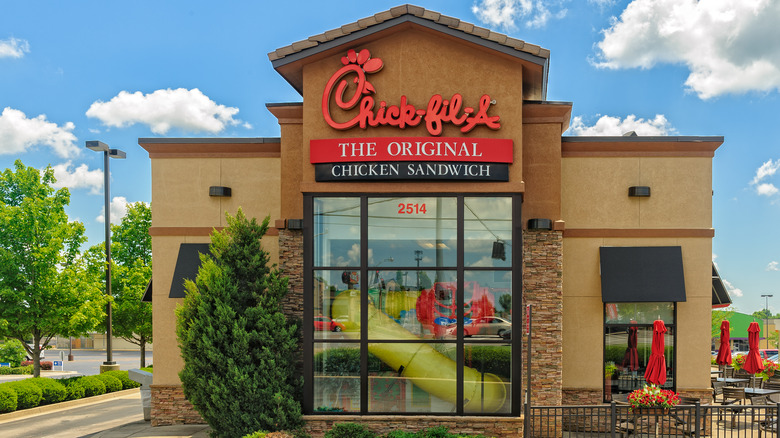Why Chick-Fil-A's Decision To Go Antibiotic-Free Was Such A Big Deal
More than ever, consumers want to know what's in the food they eat. According to Sobol, 95% of people prefer to know how food is made and what ingredients are used. This is partly due to food allergies, as 32 million Americans and 6 million American children are affected by common food ingredients (per Food Allergy Awareness). The most common allergens include peanuts, tree nuts, milk, eggs, fish, shellfish, soy, and wheat. When looking at labels, consumers look for specific terms, such as organic, antibiotic-free, GMO-free, and sustainable as well as others.
In 2019, Chick-fil-A announced it was serving antibiotic-free chicken in American restaurants. The original decision was made by the fast-food chain in 2014, and the requirements of Chick-fil-A's big menu change were met by May 2019. To ensure chickens aren't raised with any antibiotics, suppliers are audited by The United States Department of Agriculture. The news sounded good to health-conscious consumers, but what is the actual significance of the change?
Antibiotics can cause drug-resistant bacteria
When Chick-fil-A decided to rid antibiotics from its chicken, it became the largest fast food establishment in the United States to do so, per a press release. "We know consumers care about how their food is made and where it comes from, including the use of antibiotics. Because it was important to our customers, it was important to us," director of menu and packaging Matt Abercrombie said.
Per Medical News Today, antibiotics are used to limit disease transmission and speed the growth of farm animals. Though it's vital to keep food free of disease, overusing antibiotics in agriculture can cause drug-resistant bacteria to develop. When this food is consumed, the bacteria can affect humans. According to the Centers for Disease Control and Prevention, antibiotic resistance causes 23,000 American deaths per year. Antibiotics can also increase the risk of antimicrobial resistance in human bacteria. "I think that all use of antibiotics poses a risk to human health, and that reducing unnecessary antibiotic use in animals should be part of the overall solution," a doctoral researcher in structural biology at King's College London Nicola Evans said.
So, in turn, Chick-fil-A's decision could be a factor in limiting drug-resistant bacteria.

